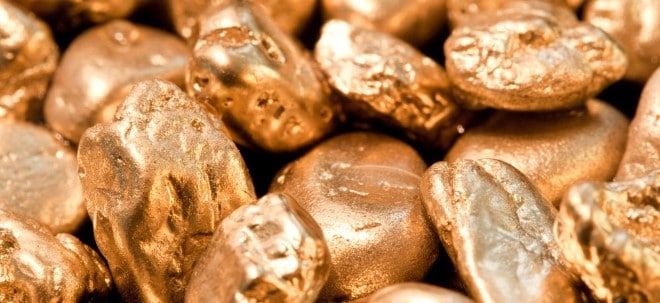Bevor es ein falsches Bild ergibt, ich schätze durchaus die intensive Diskussion und sowohl positive als auch berechtigte kritische Meinungen zur Aktie. Aber das gezielte und ausschließliche Heraussuchen von in diesem Fall das, wie ich finde, unter den gegebenen Umständen durchaus positive Bild trübenden Körnern finde ich zumindest fragwürdig.
Zum Punkt China, der entsprechende Ausschnitt lautet:
"...Canpotex's sales to China have not been impacted by the current global financial crisis and we expect Chinese buyers to settle 2009 contracts by the first quarter, with a provision for higher volumes than 2008 to ensure the replenishment of potassium for sufficient grain production next year. ..."
Abgesehen von "...with a provision for higher volumes...", das Warten mit dem Abschluß der Verträge bis zum nächsten Frühjahr stärkt keinesfalls die Verhandlungsposition, wenn man weiß (und das ist unzweifelhaft), daß die Versorgung mit Kali weiter sehr knapp bleibt. Je dringender ich das Produkt brauche, desto mehr stecke ich in der Klemme, wenn es wenig davon gibt.
Im Bericht steht weiterhin: "The Russian government has indicated it will require its domestic fertilizer producers to direct significant volumes of nitrogen, phosphate and potash to its own farmers. This could remove several hundred thousand tonnes of potash from an already tight international market next year."
Rußland als Kaliproduzent fiele dann also für den Weltmarkt auch noch aus. Mehrere hunderttausend Tonnen (!). Das würde zudem ein eventuelles Loch bei Brasilien mehr als ausgleichen.
Nochmal zu Brasilien: "Although Brazil has a great need for potassium in its soil, of all major potash markets its economy has experienced the most sensitivity to global credit issues. ... This could mean a reduction of Brazil's potash applications this fall and higher carryover of potash inventories into 2009. This could lower Brazil's potash imports by as much as 300,000-500,000 tonnes next year as compared to 2008. However, in October, the Brazilian government stepped in to provide more than 10 billion reais (approximately US $5 billion) to Brazilian banks to provide credit for farmers to purchase crop inputs. With rising global consumption of soybeans and corn, the world needs Brazil to increase its crop production. Higher long-term crop prices are required to encourage Brazil to expand its acreage and increase fertilizer consumption to meet this demand."
Also die Bauern verschieben hier wegen der Kreditkrise tatsächlich die Käufe, die Regierung springt aber bereits kräftig ein, weil Brasilianisches Soja/Korn schlichtweg gebraucht wird.
Und zu guter Letzt noch dies: "In the fourth quarter, we expect previously announced potash price increases to take hold and raise our total realized price by approximately $100 per tonne. Looking ahead, limited new potash capacity is scheduled to come on stream in 2009, even as producers are reporting record-low inventories. With global sales growth estimates ranging from a scenario of flat to a 5-percent increase, we expect potash fundamentals to remain tight. In the event of temporary demand weakness in this current economic environment, we will follow our long-held practice of matching our production to meet market demand, reducing volatility in our financial performance. This could also significantly minimize the downside of production lost during ongoing strikes at our Allan, Cory and Patience Lake potash operations. We expect our full-year 2008 potash gross margin to exceed the 2007 level by approximately 250 percent."
"Conclusion: Although we are not immune to the global financial crisis, we believe we are uniquely sheltered by the immutable long-term need for higher global food production and the key role that potash plays in helping meet this demand," said Doyle. "The gains in crop production must be protected just to maintain the current supplies and more fertilizer will be needed to ensure food security in the future. Despite the economic turmoil, governments and farmers cannot sit on the sidelines while people wait for food. While we anticipate a recovery in crop prices in 2009, we will continue to follow the long-term strategies that have guided our company for 20 years, using our agility and production flexibility to maximize earnings growth while minimizing volatility in our performance. We also view this as an opportunity to look for additional ways to increase the strength of our potash business which will reward our long-term shareholders in the future."
Natürlich weiß auch ich, daß dieses alles nur der Standpunkt von Potash ist, jedoch sehe ich hier keinen Grund für übertriebene Schönfärberei. Zudem es sich, was preis- und mengenpolitisch gesagt wird, sich absolut mit den Aussagen eines Groß-Landwirtes deckt, den ich dazu befragt habe und der K+S für unterbewertet hält.
Ich wage allerdings auch nicht, irgendeine Empfehlung auszusprechen. |


 Thread abonnieren
Thread abonnieren



